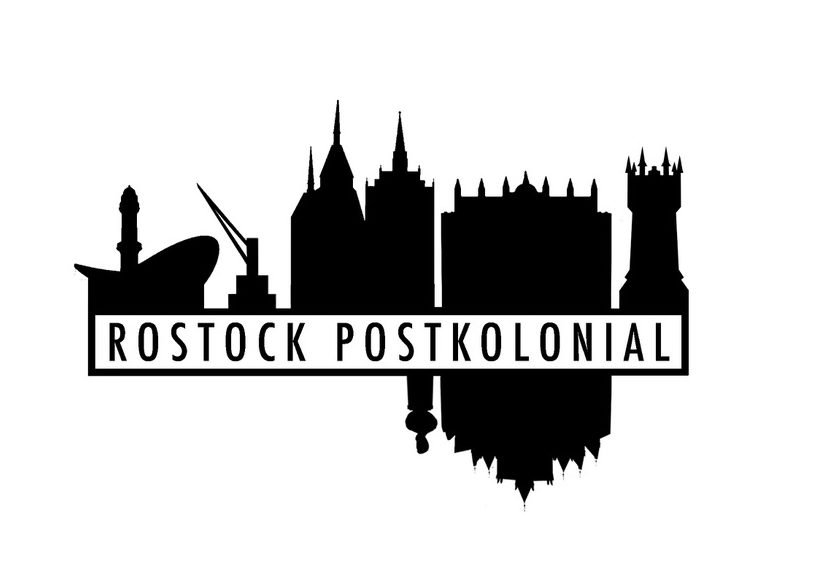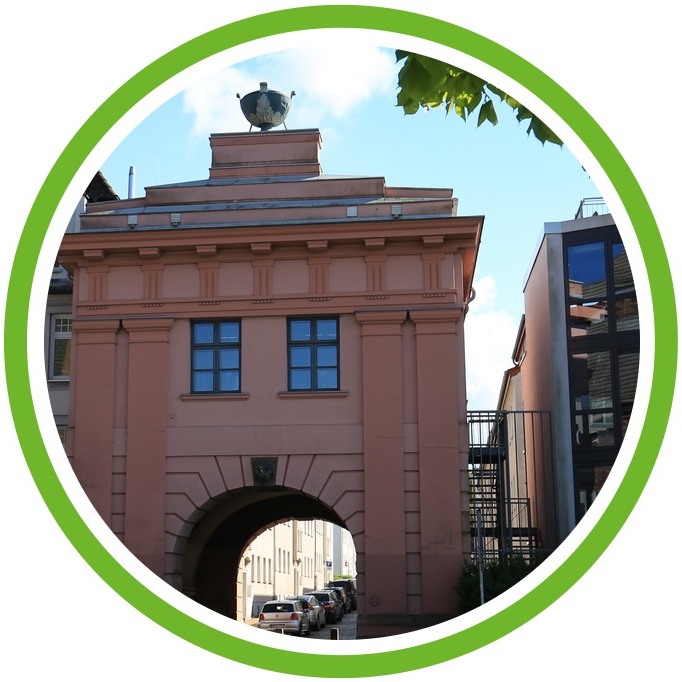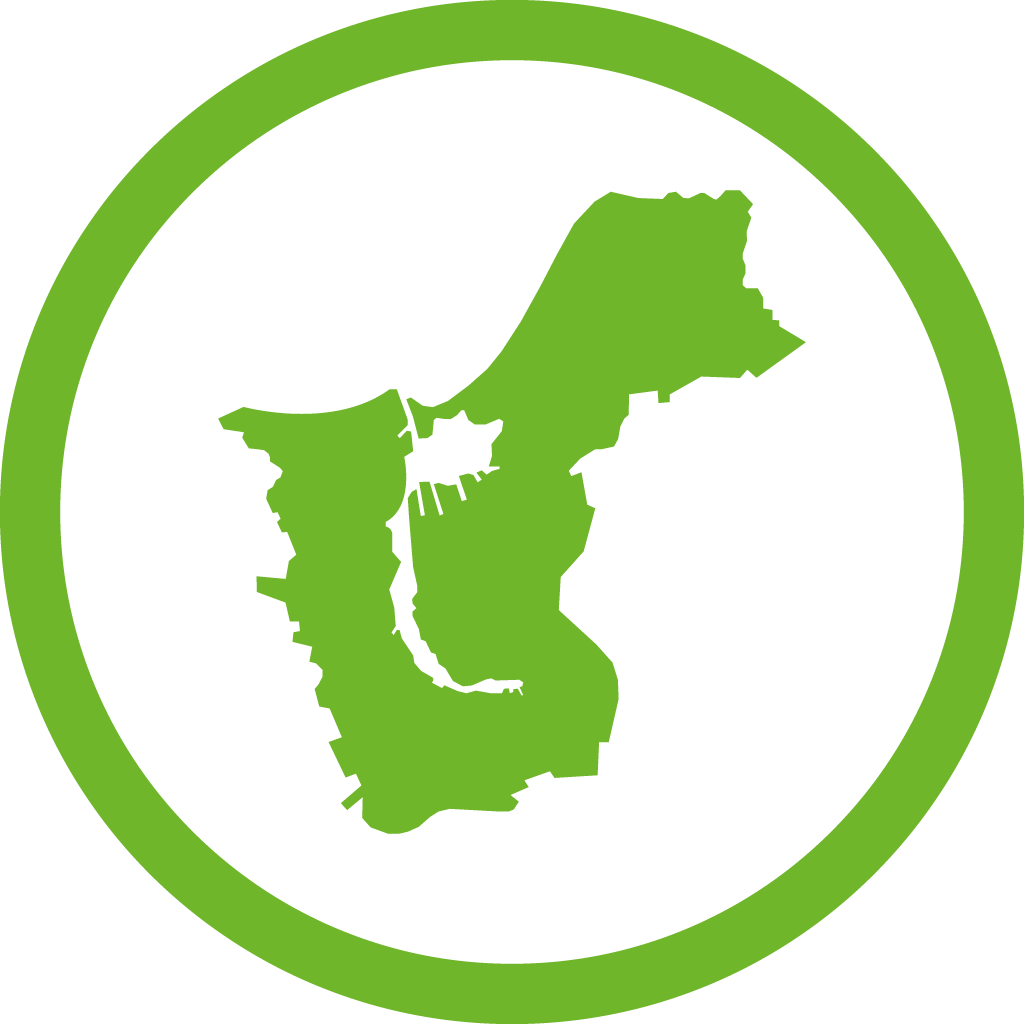Not in the mood for reading?
You can listen comfortably to all the information here and while exploring the region.
Trade and Colonialism in Rostock
Along the Warnow river, not far from the Baltic Sea, trade and the port have always been of great importance for Rostock. In 1410 Rostock was the fourth largest city in northern Germany and its membership of the Hanseatic League was economically of great relevance. The Hanseatic League was an association of north German merchants who guaranteed free trade without tariffs among several European countries. With up to 200 breweries, brewing was also an important economic pillar of the city. In the 17th century the Hanseatic League was dissolved, as trade became more and more globalized and shifted to the Atlantic, due to the colonization of many regions of the world by European powers.
In 1840 Rostock was the largest city in Mecklenburg with 54,000 inhabitants. Due to the colonial expansion of the trading areas, sea trade experienced a new high phase and became the economic engine of the city. More than 200 merchants were permanently resident in Rostock and exported local goods such as grain, fish and beer to other European countries. Colonial goods such as coffee, sugar, chocolate and tea were also imported. These goods, which were dismantled and produced in the African colonies under forced labor or enslavement by the local population, sold very well in Rostock and Mecklenburg.
In 1850, when the Neptun shipyard was founded, Rostock connected to the railway network, which made domestic trade easier. At that time the city of Rostock owned the largest merchant fleet in the Baltic Sea region. In the middle of the 19th century, more than 500 ships passed the port in Rostock every year. Other growing industries were the tobacco industry, distilleries, agricultural machinery, construction and service companies such as the chemical-pharmaceutical industry by Friedrich Witte.
Until today the port is an important economic factor in the region and imports and exports of consumer goods are still carried out. The economic relations of the Rostock merchants show clearly that not only the exchange in the Baltic Sea region, but also the global interdependence in trade with various colonial powers took place. These included England, Spain and Portugal, the Netherlands, Great Britain and France. The financial profits of the merchants and thus a significant proportion of the city’s income were therefore generated directly through the forced labour of thousands of people during the colonial period.
Today there are still a few shops in Rostock that refer positively to these historical trade connections and advertise with the term “colonial goods” (for example, EDEKA stands for „Einkaufsgenossenschaft der Kolonialwarenhändler im Halleschen Torbezirk zu Berlin“ which means “purchasing cooperative of colonial goods dealers in the Hallesches Torviertel in Berlin”.) Whoever wants to make sure that what is bought today is free of child labor, exploitation and physical coercion can pay attention to fair trade certification marks or visit the Weltladen, located in the Hermannstraße 36 in Rostock.
Sources and for reading
Bauche, Manuela (2006): Robert Koch, die Schlafkrankheit und Menschenexperimente im kolonialen Ostafrika. Online verfügbar unter: http://www.freiburg-postkolonial.de/Seiten/robertkoch.htm. Letzter Zugriff: 24.08.2020
Hansebüro der HANSE (o.J.): Die Geschichte der Hanse. Online unter: https://www.hanse.org/hanse-historisch/die-geschichte-der-hanse/. Letzter Zugriff: 24.08.2020
Koppmann, Karl (1886): Rostocks Stellung in der Hanse. Vortrag, gehalten in der Generalversammlung des Vereins zu Rostock am 12. Juli 1886.). Online unter: http://www.lexikus.de/bibliothek/Rostocks-Stellung-in-der-Hanse. Letzter Zugriff: 24.08.2020
MANET Marketing GmbH (o.J.): Rostocker Heide. Online unter: https://www.rostock.m-vp.de/rostocker-heide/. Letzter Zugriff: 24.08.2020
Regierungs-Bibliothekar Glöckler in Schwerin (1856): Der Hopfenbau und die Bierbrauerei in Mecklenburg in früherer Zeit. Band 6. – 6. Die Bierbrauerei zu Rostock im 16. und 17. Jahrhundert. Aus: Archiv für Landeskunde in den Großherzogtümern Mecklenburg und Revue der Landwirtschaft. Online unter: http://www.lexikus.de/bibliothek/Der-Hopfenbau-und-die-Bierbrauerei-in-Mecklenburg-in-frueherer-Zeit-Band-6-6-Die-Bierbrauerei-zu. Letzter Zugriff: 24.08.2020
Weisler, Veronika (o.J.): Die Handelswaren der Hanse. Online unter: https://www.sbg.ac.at/ges/people/janotta/diehanse/page-se-arbeiten/searbeitweiser.htm#3. Letzter Zugriff: 24.08.2020



